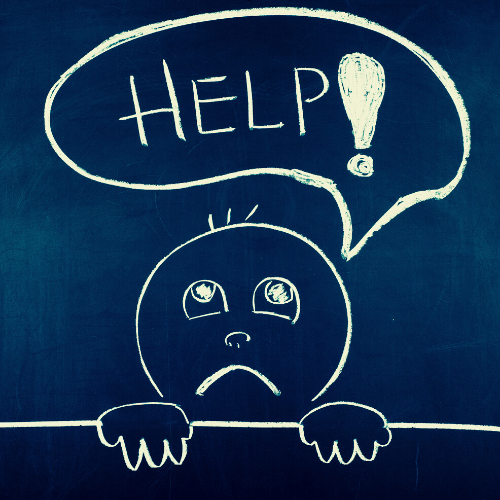Childhood Experience and Trauma
Self-destructive and challenging behaviours in adolescence!
There are many young people and children who stray off the straight and narrow. Some find their way back, but others find themselves on a journey of self-destruction and self-harming behaviours - including challenging behaviour, criminal activity such as substance abuse, theft, violence and anti-social behaviours.
This can occur for many reasons, including childhood trauma, socio-economic factors and family/peer relationships. When this happens, the child and their families may find themselves entangled within government authorities such as: the police, social services, youth criminal justice system and also mental health services.
Research has shown that certain risk factors including ‘Adverse childhood Experiences’ (ACEs) may have a long lasting impact on both children’s and young people’s mental health as well as their relationships with others. “ACEs are highly stressful, potentially traumatic events or situations that occur during childhood and/or adolescence” (www.mind.org.uk).
** it is important to know that we do not all respond the same to adversity and trauma. Some children and young people will not be as negatively impacted as others.
Research has shown that children who are exposed to ACEs at an early age are at a higher risk of experiencing mental health issues, including depression, anxiety and emotional distress. Other risk factors include low self-esteem, depression, bullying, sexual and physical abuse, family-peer-school influences/pressure, loss, all may contribute to a higher likelihood of self-destructive, challenging and risk taking behaviours both in childhood and beyond.
Research has also shown that children who have experienced family and peer violence (including the witnessing of) have a higher risk of conduct behaviours and mental health issues.
We know that often it does not simply stop there! Sadly, many will also struggle during adulthood and will become victims yet again. ‘Half of adults (52%) who experienced abuse before the age of 16 years also experienced domestic abuse later in life; compared with 13% of those who did not experience abuse before the age of 16 years’.
Furthermore, one in five adults aged between 18-74 years has experienced at least one form of child abuse, such as emotional abuse, physical abuse, sexual abuse, or witnessing domestic violence or abuse, before the age of 16 years.
Statistics taken from the Office of National Statistics, Crime and Justice report.
Full report can be found here Child abuse extent and nature, England and Wales: year ending March 2019
We also know that these experiences can affect healthy neural (brain) development. This can have a negative impact on the child’s normal development, sometimes leading to neurodevelopmental disorders and other mental health conditions.
What are neurodevelopmental disorders?
A definition from the ‘The Psychologist BPS’ states that ”Neurodevelopmental disorders are commonly defined as disorders of multivariate origin where the cause is unknown or complex, with typical onset in childhood, that may affect areas of cognitive function such as memory, inhibition control, coordination and motor skills, as well as emotion regulation” (www.thepsychologist.bps.org.uk).
Logically, in order to reduce these types of behaviours and emotional distresses, we need to fully understand why so many children and young people may use destructive and self-harming behaviours.
So what can we do?
Children and young people need to be heard and really understood. They need to be listened to, not judged, they need to build positive healthy relationships and to learn how to become more emotionally intelligent and resilient. They need time and a safe environment where they can explore and untangle any distress they are experiencing.
We can also see the child or young person through a ‘trauma focused lens’, we shift the focus from ‘What is wrong with you?’ to ‘What has happened to you?’ and ‘What are you experiencing?’. We focus on what the child or young person is experiencing, not simply their behaviours.
As a therapist, I have often witnessed how damaging focusing solely on the ‘behaviours’ can be. We need to look at the bigger picture!
Children and young people also need to build healthy coping strategies and be offered certain conditions in order for growth and change. This includes: self awareness, trust, resilience, education, support and safety.
Finally, parents and care givers also need help and support. Often, parents are at their wits end, trying to get through to a non engaging and disconnected teenager or child. Often feeling like they are given no help or support at all. They may also feel like they have no control or can see a way forward. Encouraging and supporting parents is the answer - not blame. Parents are often under immense stresses and pressures themselves.
If your child or youth remains distressed for a long period of time, and they are affected by negative feelings and behaviours which are impacting on their normal life activities, please always get in touch with us for professional help and support.
Equally, if you are a parent or caregiver who needs to support please also contact us.
Helpful resources.
** ACEs.
https://www.gov.scot/publications/adverse-childhood-experiences-aces/ more information on ACEs
https://www.youtube.com/watch?v=TLULtUPyhog The teenage brain - credits Daniel Siegel
https://uktraumacouncil.org/resource/how-the-brain-adapts-to-adversity The brain and how it adapts to adversity - credits UK Trauma Council.

